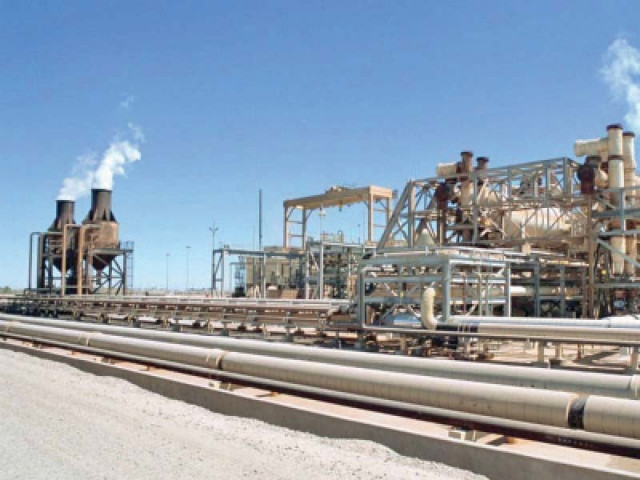KCCI decries suspension of gas
Says industries face staggering 30% decline in production activities

Pakistan’s business community is facing a dire challenge that threatens economic stability – the chronic shortage of essential utilities such as electricity, gas, and water. Industries in Karachi, the nation’s industrial heart, have been severely affected, prompting the President of the Karachi Chamber of Commerce & Industry (KCCI), Mohammed Tariq Yousuf, to urgently call on the federal government for intervention.
The Sui Southern Gas Company (SSGC) has recently imposed a crippling two-day weekly suspension of gas supplies to industries in Karachi. This has resulted in a staggering 30% decline in production activities, causing significant losses for businesses. The KCCI president expressed frustration over this situation and appealed to Prime Minister Shehbaz Sharif and Minister of State for Energy Musadik Malik to address the issue promptly.
The consequences of these utility shortages extend beyond the business community, impacting the entire nation’s economic stability. President KCCI emphasised the crucial role Karachi plays, contributing 68% of revenue to the national exchequer and 54% to national exports. The city is also responsible for 52% of the country’s textile exports. However, despite its substantial contributions, Karachi has been deprived of gas supply, raising concerns about the violation of Article 158 of Pakistan’s constitution, which grants the province the first right to the gas produced within its boundaries.
Research conducted by Gallup Pakistan in 2022 highlights the severity of utility challenges faced by businesses in Pakistan. The study found that Pakistani firms experience 22 electrical outages in a typical month, four times higher than the global average. Frequent electricity disruptions lead to annual sales losses for businesses. However, the use of generators helps mitigate some of the losses compared to other regions.
The water supply issue affects 2% of firms in Pakistan, lower than the global average. Yet, the textile industry bears the brunt of water insufficiencies due to its high-water consumption. Transportation emerges as a significant constraint for 25% of Pakistani firms, indicating potential issues with the country’s roads and overall transportation system.
To ensure sustained economic growth, the Pakistani government must prioritise resolving infrastructure challenges related to electricity, gas, water, and transportation. A reliable and uninterrupted supply of utilities is crucial for creating a conducive environment for businesses to flourish. Addressing these issues will not only benefit industries and the business community but also enhance the country’s position in the global market.
Business leaders emphasise that the federal government’s commitment to overcoming economic crises must be demonstrated through swift and effective actions. Investment in infrastructure development, streamlining processes, and adopting sustainable practices will unlock Pakistan’s full economic potential and pave the way for a prosperous future.
With Karachi’s industries at the heart of Pakistan’s economy, it is vital to prioritise their needs and provide them with the necessary resources to thrive. The federal government’s immediate attention to resolving utility crises can alleviate the hardships faced by businesses and bolster the country’s economic prospects.
President KCCI’s appeal to the government serves as a wake-up call, urging authorities to take proactive measures to ensure the smooth functioning of industries and foster an enabling business environment. As Pakistan strives to become a significant player in the global market, the resolution of utility crises will play a pivotal role in achieving this ambition.
Published in The Express Tribune, July 19th, 2023.
Like Business on Facebook, follow @TribuneBiz on Twitter to stay informed and join in the conversation.


















COMMENTS
Comments are moderated and generally will be posted if they are on-topic and not abusive.
For more information, please see our Comments FAQ